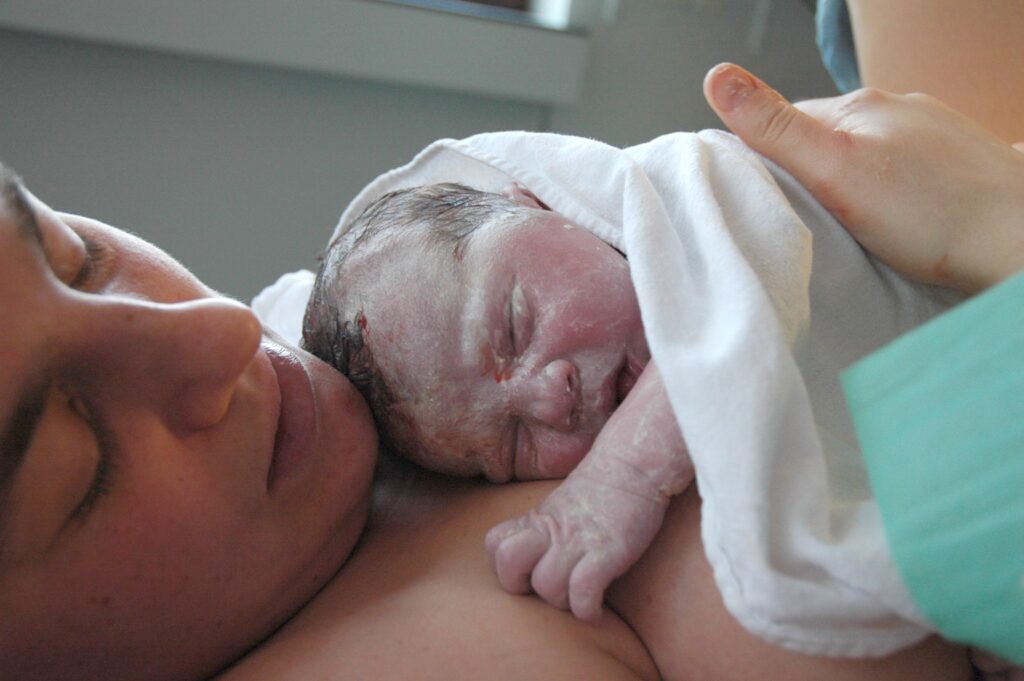In This Article Show
As an expectant mom, it can be frightening to discover that your baby is two weeks behind on the growth scan. It is relatable to be worried and confused about your baby’s well-being and development.
This condition is known as Fetal Growth Restriction or Intrauterine Growth restriction. It is identified when the unborn baby’s weight and size are a few weeks behind. This can sometimes indicate a health issue such as a heart, lung, or liver problem, and most especially malnutrition.
Moreso, it is great to understand that this doesn’t always occur as a sign of a health issue, as babies generally grow at different paces and also come into their unique shape and size. Notwithstanding, it remains best to seek your doctor’s guidance for the necessary steps to take.
This blog post is dedicated to giving you in-depth knowledge of the potential reason why your baby’s growth is behind by 2 weeks, and also provides you with tips to ensure that you and your baby scale through this amazing journey safe and sound. Let’s get started.
Fetal Growth Chart
Here is a tabular illustration that reveals fetal measurement;
| Gestational Age (per week) | Length (cm) | Weight(grams) |
| 6 Weeks | 0.32 cm | 1 gram |
| 7 Weeks | 0.32 cm | 1 gram |
| 8 Weeks | 1.57 cm | 20 grams |
| 9 Weeks | 2.30 cm | 27 grams |
| 10 Weeks | 3.1 cm | 35 grams |
| 11 Weeks | 4.1 cm | 45 grams |
| 12 Weeks | 5.4 cm | 58 grams |
| 14 Weeks | 6.7 cm | 73 grams |
| 16 Weeks | 14.7cm | 93 grams |
| 17 Weeks | 16.7 cm | 117 grams |
| 18 Weeks | 18.6 cm | 146 grams |
| 19 Weeks | 20.4 cm | 181 grams |
| 20 Weeks | 22.2 cm | 223 grams |
| 21 Weeks | 25.6 cm | 360 grams |
| 22 Weeks | 27.80cm | 430 grams |
| 23 Weeks | 30.6 cm | 568 grams |
| 24 Weeks | 32.2 cm | 600 grams |
| 25 Weeks | 34.6 cm | 660 grams |
| 26 Weeks | 35.1 cm | 784 grams |
| 27 Weeks | 36.6cm | 875 grams |
| 28 Weeks | 37.6 cm | 1005 grams |
| 29 Weeks | 39.3 cm | 1153 grams |
| 30 Weeks | 40.5 cm | 1319 grams |
| 31 Weeks | 41.8 cm | 1502 grams |
| 32 Weeks | 43.0 cm | 1702 grams |
| 33 Weeks | 44.0 cm | 1918 grams |
| 34 Weeks | 45.0 cm | 2146 grams |
| 35 Weeks | 46.1 cm | 2389 grams |
| 36 Weeks | 47.8 cm | 2813 grams |
| 37 Weeks | 48.3 cm | 3028 grams |
| 38 Weeks | 49.80 cm | 3236 grams |
| 39 Weeks | 50.7 cm | 3435 grams |
| 40 Weeks | 51.3 cm | 3619 grams |
Great deals to snatch for your little ones 🎉
Fetal Growth Restrictions Explained

Fetal growth restriction (FGR) formerly known as Intrauterine growth restriction (IURR) is a condition that is identified as a slowed or restricted growth of a fetus during pregnancy.
When it is certain that a baby has fetal growth restrictions, it means that the growth and development of the baby are slow or stunted, thereby causing their size to be below the range of the average range of their gestational age.
That said, the fetal condition can be very concerning and alarming for expecting parents, as it may be an indication of a health issue or a complication in the course of the pregnancy. The most common cause of fetal growth restrictions is placenta issues.
Other causes include heart conditions, lung issues, smoking, drug use, poor diet, and nutrition as well as high blood pressure. However, by following your doctor’s instructions, expectant parents can ensure that their bundle of joy arrives safe and sound.
Reasons Why Baby Is Measuring 2 Weeks Behind
The following are the possible reasons why your baby is measuring 2 weeks behind;
1. Placenta Issues
The placenta is a vital organ that ensures the growth and development of babies in the womb. Through the placenta, the baby gets access to nutrients from food consumed by an expecting mom. It also ensures that the baby gets enough blood flow and oxygen.
That being said, when there is an issue with the placenta such as placenta previa, and placenta abstruption, access to the essential needs of the fetus will be compromised or limited.
2. Miscalculations
If the dating calculations are incorrect, it might seem like your baby is 2 weeks behind. Gestational age is estimated by the first day of the last menstrual flow, however, this method is not always accurate and precision is not fully certain.
3. Genetics
The genetic makeup of the fetus also has a huge role to play in this. If for instance the baby has inherited health problems such as sickle cell amenia, falling behind by 2 weeks is bound to occur.
4. Fetal Growth Restriction (FGR)
This is another reason why your baby is weighing or measuring 2 weeks behind. To ascertain that this is the cause, expecting parents have to see the doctor for diagnosis.
What To Do When Baby Is Measuring 2 Weeks Behind
When a baby’s measurement is 2 weeks behind, the following following are the necessary steps to take;
- Set up a regular doctor’s appointment, more preferably get in contact with a high-risk doctor for medical checkups and well-informed guidance on the best action to take. This will ensure that your baby’s growth and development are closely monitored with regular scans and ultrasounds.
- It is also very important to take your nutrition and diet very seriously. Expectant mothers should always consume healthy foods and a well-balanced diet so that the unborn can enjoy enough nourishment that aid their growth and development.
- Mom-to-be should try as much as possible to avoid strenuous activities like lawn mowing, kayaking, hiking, and other stress-related activities. Taking a lot of rest can be very helpful in situations like this, bed rest may even be required.
- For maternal issues like drugs and smoking, it is best to avoid these harmful substances while on your journey.
Conclusion
For the sake of your journey, it is best to not worry if your baby is two weeks behind. The fact is, even if your baby is two weeks behind, it can still grow and develop perfectly fine and also live a normal life once born.
However, it is still important to seek medical guidance and advice from an OB/GYN or a high-risk OB/GYN to eliminate any underlying threat to the baby. Moms-to-be are expected to be diligent with follow-up care such as regular ultrasounds and scans to closely monitor the growth of the baby.













